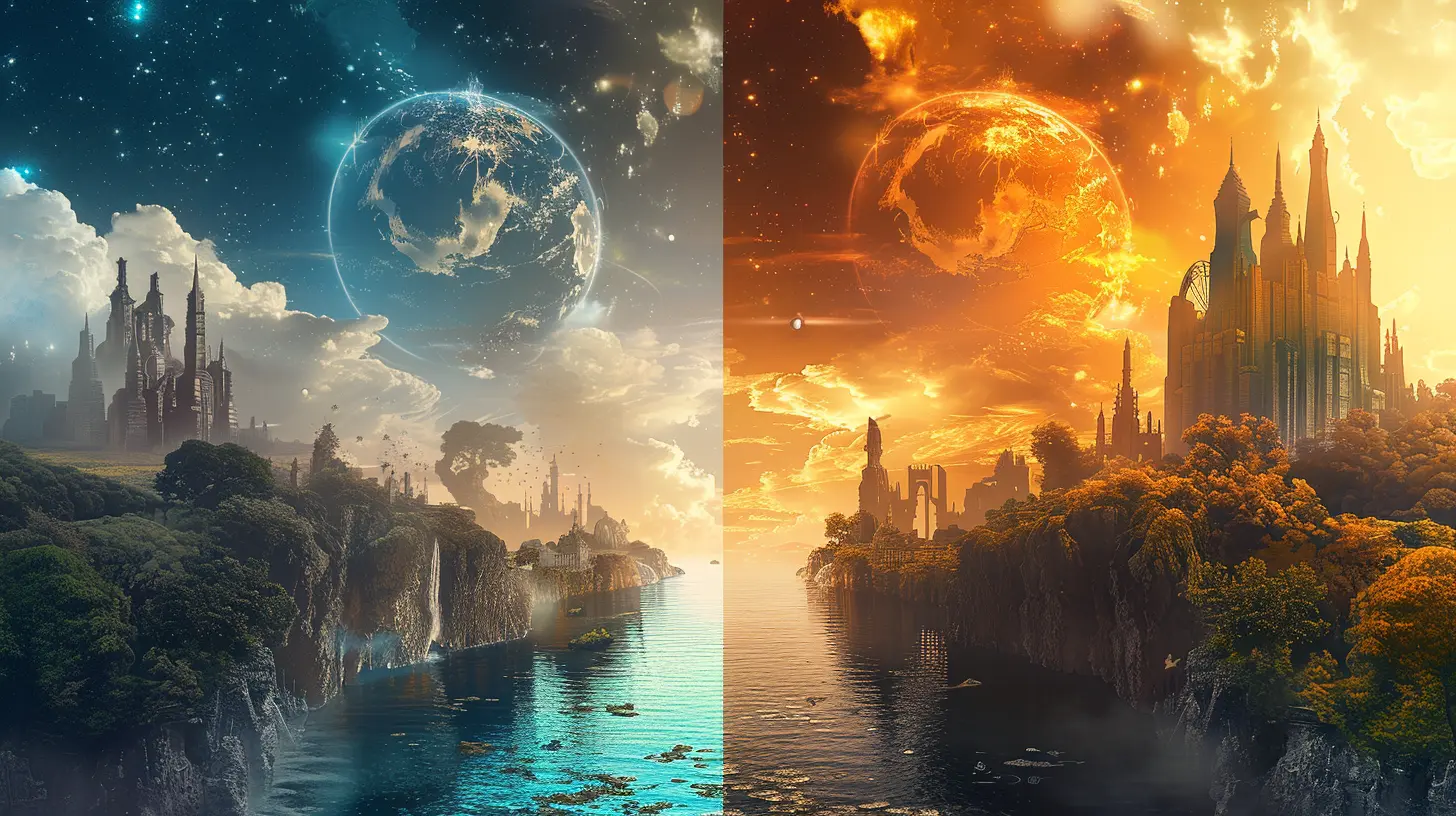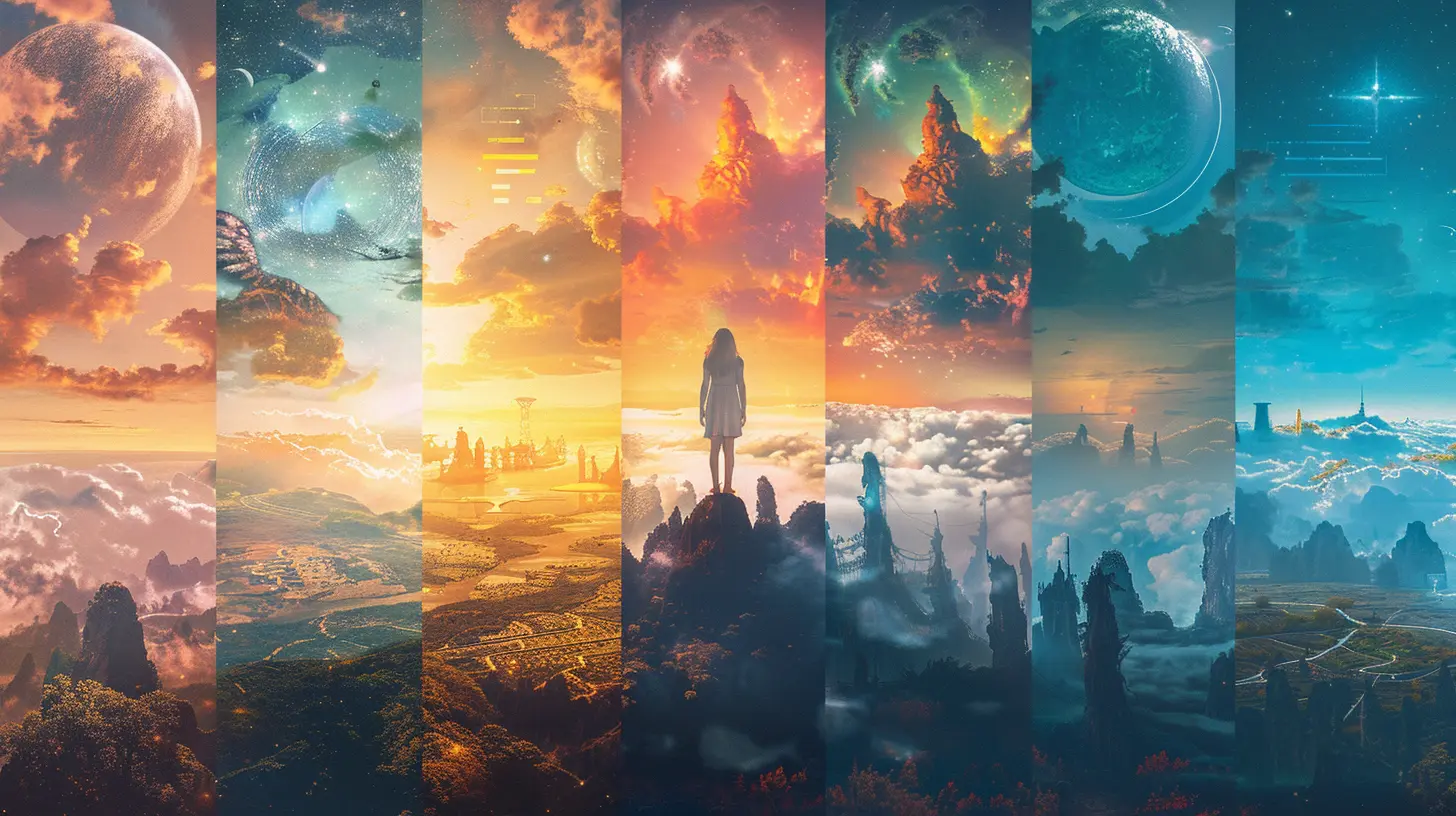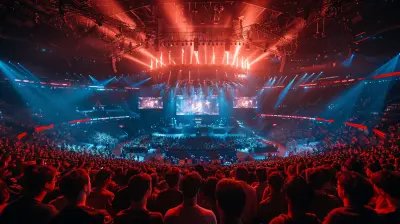Fantasy Worlds vs. Sci-fi Universes: Approaching World Building in Different Genres
7 October 2025
World-building is like laying the foundation for a house. Whether you're crafting a realm of dragons and enchanted forests or mapping out futuristic galaxies ruled by AI, the worlds we build in fiction shape every twist, turn, and triumph that follows. In gaming, a well-built world doesn’t just hold the player—it pulls them in. It breathes, grows, and dares them to go deeper.
But here’s the thing: world-building isn’t a one-size-fits-all. Fantasy and science fiction—while they both live under the big umbrella of speculative fiction—play by different rules when it comes to crafting immersive worlds. Want to know why knights and androids don’t often share the same tavern? Let’s dig in and unpack the art of world-building across these two epic genres.
What Makes World-Building So Important?
Before we pit fantasy and sci-fi against each other, let’s talk about why world-building even matters.Think of your favorite game—be it The Witcher, Skyrim, Mass Effect, or Starfield. What do they all have in common? A vivid world that feels alive, even when you're doing side quests that involve picking flowers or scanning alien minerals. That’s the magic (or science) of great world-building. It’s the reason players come back, not just for the story, but to exist in that universe.
Whether it's medieval villages teeming with whispered legends or sprawling space colonies with political agendas, a believable world doesn’t just support gameplay—it is the game.
The Building Blocks of Fantasy Worlds
Fantasy is the genre of the impossible. It’s where imagination runs wild, often fueled by ancient lore, mystical creatures, and good ol’ fashioned swordplay. But there’s a method behind the madness.1. Magic Systems
Let’s be honest—fantasy without magic is like pizza without cheese. But magic needs rules. Is it learned or inherited? Does it cost something to use? Games like Final Fantasy or Dragon Age create distinctive systems that feel coherent and balanced.A solid magic system affects everything—economy, warfare, politics. Imagine if electricity were suddenly replaced by mana. That shift alone would change the world as we know it.
2. Mythology and Lore
Fantasy thrives on history—even if it’s all made up. You’ll often find lengthy origin stories, prophecies, and extinct civilizations buried in the backdrop.Games like The Elder Scrolls have entire libraries of lore, offering players a chance to dig into the world’s past to understand its present.
3. Geography and Cultures
From icy mountain kingdoms to desert empires, fantasy worlds are often segmented into diverse biomes ruled by distinct societies. Each region has unique traditions, clothes, dialects, and sometimes, species.These elements are more than just aesthetic—they’re world-building gold. Players feel more invested when they’re navigating a world with real (or at least believable) cultural depth.
The Core Tenets of Sci-fi Universes
Now let’s blast off into sci-fi territory, where rockets replace dragons and tech is the new magic.Science fiction, at its heart, is about asking “what if?” What if humans could upload their consciousness? What if we colonized Mars but still couldn’t fix office politics? Sci-fi is grounded more in logic than mysticism, even when it feels fantastical.
1. Scientific Plausibility
Sci-fi often toes the line between fiction and speculative technology. The more grounded the tech, the more believable the universe. This doesn’t mean everything needs to be textbook accurate, but it should at least feel logical.Why does the ship have artificial gravity? How do people breathe on Titan? If a civilization has mastered faster-than-light travel, what does that say about their energy sources?
Games like Stellaris and No Man’s Sky use scientific ideas as the skeleton for their sprawling universes.
2. Technology and Innovation
In sci-fi, technology is king. But like magic in fantasy, it needs structure.Is AI benevolent or a rogue entity? Are there androids with feelings? Can people time travel—and if so, do they mess up their own timelines?
The level of technological advancement affects everything: from daily life to philosophical beliefs. Think of how a replicator (like in Star Trek) changes food scarcity. Boom—entire economies get reshaped.
3. Socio-Political Systems
Sci-fi loves to poke at politics, ethics, and society. Cyberpunk worlds explore corrupt megacorporations. Space operas dive into galactic empires and alien alliances.Sci-fi doesn’t just ask what the future could be—it questions what it should be. That’s why world-building in this genre often mirrors real-world issues, albeit with laser beams.
Comparing Fantasy and Sci-fi World-Building: More Alike Than You Think?
While fantasy and sci-fi often seem like opposites, they share some surprising DNA strands. Both require consistent internal logic. Both benefit from deep histories and cultures. And both need a reason for the player—or reader—to care.But where they really diverge is in their starting point.
- Fantasy looks backward. It draws from ancient myths, medieval times, and legendary heroes. The future is rarely the focus.
- Sci-fi looks forward. It imagines new possibilities, often extrapolating from current advancements. It’s about potential.
Fantasy is the realm of destiny. Sci-fi is the domain of decisions.
Challenges Unique to Each Genre
Now let’s talk about the hurdles developers and writers face when building these worlds.Fantasy’s Pitfalls
- Clichés Everywhere: Elves, dwarves, dark lords—sound familiar? It's easy to fall into the trap of recycling Tolkien-esque tropes.- Overcomplicated Lore: Sometimes, less is more. Not every small town needs a 300-year family tree.
- Magic That Solves Everything: If magic can fix every problem, why should anyone struggle? Deus ex magica = bad storytelling.
Sci-fi Struggles
- Tech Overload: Too much jargon or unexplained tech can alienate players. (No, I don’t want to calibrate another flux capacitor.)- Cold Worlds: Without emotional grounding, sci-fi settings can feel sterile or dull.
- Prescience Pressure: Sci-fi risks becoming outdated as real-world tech catches up. (Looking at you, 1980s “futuristic” computer graphics.)
Blending the Best of Both Worlds
Is it possible to have magic and machine in the same universe? Absolutely. Hybrid genres like science-fantasy mix the two.Think Destiny, where ancient alien tech feels mystical. Or Star Wars—yes, it has lightsabers and hyperspace, but also a mystical Force that feels very much like fantasy magic.
Mixing genres allows for incredible creativity, but it’s a balancing act. You have to keep rules consistent and establish how magic and tech coexist (or conflict).
Tips for Better World-Building in Games
Whether you’re crafting a fantasy realm or a sci-fi galaxy, here are some universal tips:1. Start With A Core Concept
What makes your world different? Is it floating continents? A post-singularity AI society? Boil your world down to one unique idea and build outwards.2. Develop Your Rules First
Set your limitations early—whether that’s how magic works or the boundaries of your tech. Consistency is key.3. Use Conflict To Drive Depth
The conflicts in your world (class divisions, wars, moral dilemmas) reveal more about it than any lore book.4. Think About Daily Life
What do regular people eat, worship, fear, or celebrate? Giving attention to everyday life makes your world feel lived-in.5. Let Players Discover, Not Just Read
Instead of info-dumping, let players piece together your world’s history through artifacts, NPC dialogue, and environments.Final Thoughts
Fantasy and sci-fi both offer endless room for creativity, but they go about it in radically different ways. Fantasy is emotional, magical, and steeped in old myths. Sci-fi is cerebral, predictive, and grounded in innovation. Neither is better—but each demands a unique flavor of world-building.Whether you're a game dev crafting your next indie RPG or just a fan of the genre, understanding how these worlds tick helps you appreciate the craft behind the curtain.
And if you ever find yourself torn between designing a spell book or a control panel—why not both?
all images in this post were generated using AI tools
Category:
World BuildingAuthor:

Audrey McGhee
Discussion
rate this article
2 comments
Gabriella Mathews
Both fantasy and sci-fi craft immersive realms, yet their approaches reveal deeper truths: one lures us with wonder and magic, while the other challenges us to explore our future potential.
January 23, 2026 at 4:54 AM

Audrey McGhee
Absolutely! Fantasy enchants us with its imaginative wonders, while sci-fi pushes the boundaries of our reality and potential. Each genre offers unique insights into the human experience.
Vaughn McClary
Great insights, thanks for sharing!
October 9, 2025 at 5:08 AM

Audrey McGhee
Thank you! I'm glad you found it helpful!


